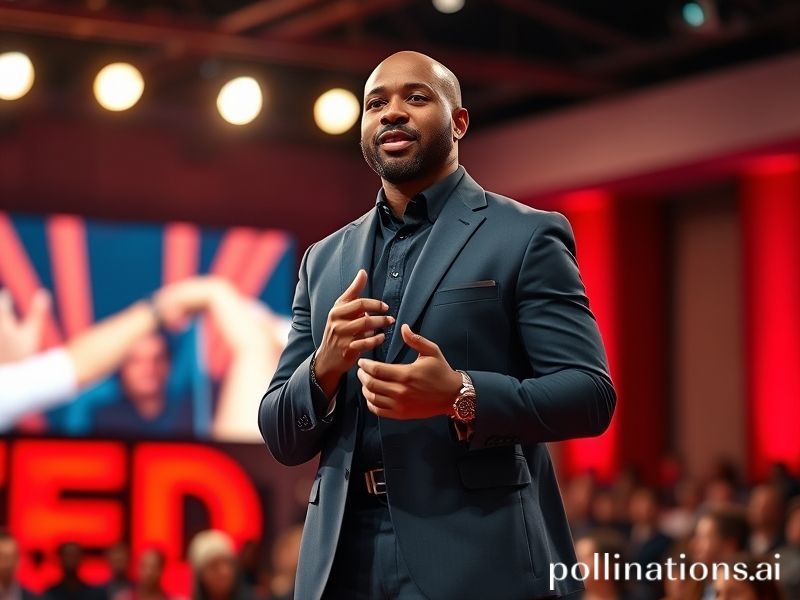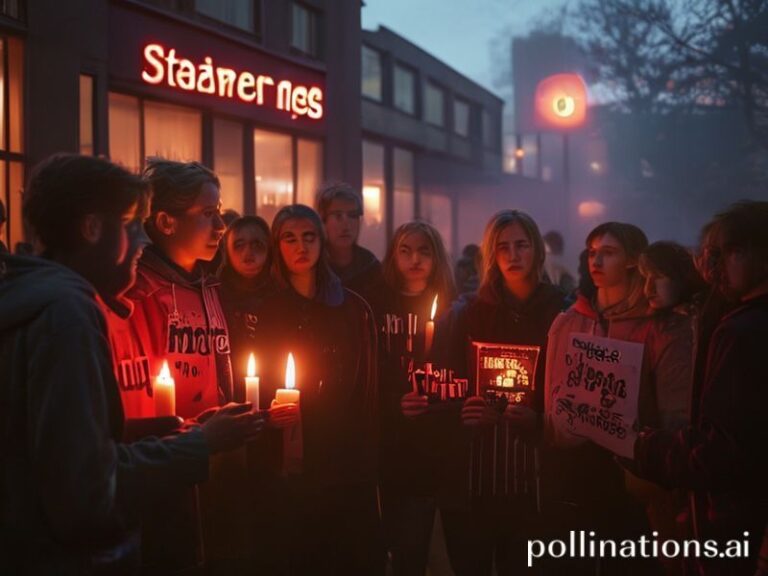Devon Franklin’s Global Gospel: How a Hollywood Producer Became the Supply-Chain Saint of Late Capitalism
Devon Franklin, the Los Angeles–bred producer-preacher hybrid who once blessed Sony’s balance sheets with Heaven Is for Real and Miracles from Heaven, has lately been exporting his particular brand of sanctified self-help to a planet that seems increasingly allergic to both sanctity and help. From Lagos megachurches that project his TED-adjacent sermons on Jumbotrons, to Seoul start-ups binge-listening to his audiobooks at 1.5× speed in pursuit of “purpose-driven disruption,” Franklin has become a one-man transcontinental mood stabilizer: half prosperity gospel, half LinkedIn influencer, wholly convinced the algorithm loves him back.
It’s tempting to dismiss the Devon Franklin Industrial Complex as just another American who discovered that spirituality scales better than soybeans. Yet the numbers insist otherwise. His latest book, It Takes a Woman, simultaneously topped Amazon charts in the United States and became the number-two imported non-fiction title in the United Arab Emirates—right behind a manual on how to survive the heat death of the Earth and just ahead of a treatise on the moral limits of cryptocurrency. In Nairobi, matatu drivers stencil his motivational quotes (“Your setback is a setup for a comeback”) on dashboards already cluttered with icons of the Virgin Mary and Rihanna. If you squint, the whole tableau looks like late-stage globalization wearing a WWJD bracelet.
The international appeal, cynical observers note, is less about theology than about supply-chain efficiency. Franklin offers turnkey hope: bite-size, export-ready, and—crucially—customs-exempt. No messy incense, no awkward dietary restrictions, just a direct-to-consumer grace that fits neatly between Spotify ads. European secularists roll their eyes, but Frankfurt’s austerity-shocked millennials still queue for his seminars, clutching lattes and existential dread in equal measure. Meanwhile, in Brazil, pastors translate his tweets into Portuguese and add extra exclamation points, because even despair needs emoji when bandwidth is expensive.
Franklin’s own pivot from vice-president of production at Columbia Pictures to full-time apostle of “faith and film” once looked like a midlife PR crisis. Now it reads like geopolitical strategy. Hollywood needs new markets; the developing world needs new dreams. Enter a man who can quote both Matthew and box-office grosses, selling the idea that your life deserves a three-act structure and a happy ending—preferably green-lit before Q4 earnings. The joke, of course, is that the same streaming platforms distributing his sermons are simultaneously pumping dystopian Korean thrillers into every household with a Wi-Fi password. One algorithm giveth transcendence; the other giveth squid games. The viewer toggles between them faster than you can say cognitive dissonance.
Diplomats, ever alert to soft-power opportunities, have begun inviting Franklin to “cultural engagement” junkets. Last spring he keynoted a U.N. forum on ethical storytelling, sandwiched between panels on famine and ransomware. Delegates left clutching branded journals emblazoned with “Live Your Purpose,” though most were still searching for purpose by cocktail hour. The irony wasn’t lost on the interpreter pool, who rendered “breakthrough mindset” into six languages and at least three economic classes.
Still, the darker joke may be on us. In a world where supply chains fracture and democracies wobble like bad Wi-Fi, the desire for tidy redemption arcs is itself a market failure. Franklin simply monetizes the gap between what we know (everything is precarious) and what we’d like to believe (someone upstairs is green-lighting sequels). International finance calls that arbitrage; theology once called it grace. Either way, the margins are heavenly.
So when you next spot a Manila billboard promising “Producer. Preacher. Possibility.”—alliteration apparently being the lingua franca of late capitalism—remember the global ledger. We ship weapons, micro-plastics, and Devon Franklin in the same containers, praying at least one of them saves us. Spoiler: the container never unpacks itself.







